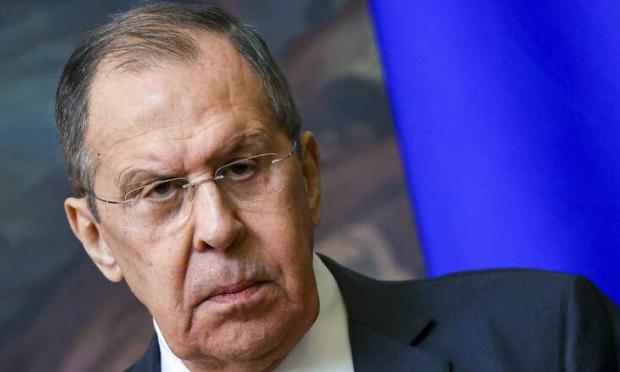Russian Foreign Minister Sergei Lavrov, after almost a year since the Russian invasion of Ukraine, made a resounding statement-warning: "We are no longer talking about a Russia-West hybrid war, but about a real one."
In his statement, he also referred to Greece, saying that, "in recent years, Greece and Cyprus have been among the friendliest countries to us. We had a huge number of joint cultural and educational events. Economic cooperation was actively developing for the sake of mutual interests."
"The speed with which they moved not only to the "camp" of those who signed the sanctions, but also to the group of leaders of anti-Russian actions, was strange. It reflects the imposed line of aggressive confrontation and not the interest of the Greeks," added the Russian Foreign Minister, according to a post by the Russian embassy in Athens on Twitter.
"As for what is happening in Ukraine, we are talking about the fact that it is no longer a hybrid war, but a real one, the West has been preparing for a long time against Russia, trying to destroy everything Russian that is left in Ukraine. From the language to the culture - which have been there for centuries - and they have also forbid the citizens to speak their mother tongue," Lavrov clarified his statements about the West at a press conference held after the talks with the foreign minister of South Africa, Naledi Pandor, as reported by the Russian news agency TASS.
Among other things, Lavrov noted that Ukraine has adopted laws banning Russian-language education, Russian-language media, and laws effectively banning the use of the Russian language in everyday life:
“Any cultural contacts related to the Russian language are prohibited and all this is supported by the West. Just as the West supports the regular marches of neo-Nazis with swastikas, with divisive symbols banned by the Nuremberg Trials... So the West supports all of this."
It is recalled that Russian Foreign Minister Sergei Lavrov was in South Africa today for talks with one of his country's most important allies on a continent divided over the Russian invasion of Ukraine and Western efforts to isolate Moscow.
Lavrov met with his South African counterpart Naledi Pandor in the capital Pretoria in what South African government officials described as a formal visit. However, opposition parties and the country's small Ukrainian community condemned the visit.
Pandor has repeatedly insisted her country does not support either side and has criticized the West for selectively condemning Russia while ignoring other aggressive actions, such as Israel's occupation of Palestinian land.
The South African military is set to host a joint military exercise with Russia and China on the country's east coast from February 17 to 27, a move likely to further strain ties with Washington and European countries. It even coincides with the first anniversary of Russia's invasion of Ukraine on February 24.



